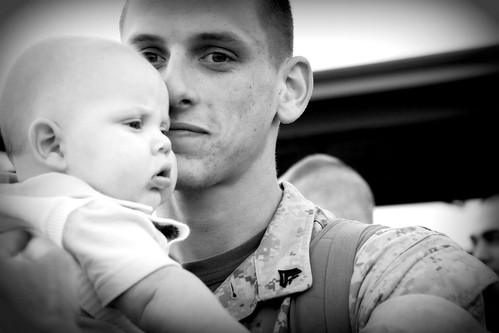Missouri 'Don't Mention Mormons' Bill: GOP Sponsors Wary Of 'Mormon Agenda'
Republican lawmakers in Missouri are defending their controversial bill to ban the teaching of religious philosophy in schools as a way to prevent students from learning about the "Mormon agenda," the "Christian conspiracy" and the occult.
A group of 20 Republican state representatives introduced the so-called "don't mention Mormons" bill last week to prevent the teaching of religious philosophy in public schools, with the exception of classes relating to the founding of America. Tennessee legislators have been debating a similar proposal.
"When it comes to religion, that is a discussion that should be left for the most part up to the parents," House Ways and Means Committee Chairman Andrew Koenig (R-Winchester) told HuffPost. "It is a pretty political subject. I know there are a lot of parents that do not want the Mormon agenda taught in the schools."
Koenig said he has heard of what he called a "Mormon agenda" being taught in elementary school, but when questioned, said he did not know of specific incidents "off the top of my head."
"I have heard of instances with story books in grade school where it has come up," Koenig said. "You have Christians pushing an agenda, and you have Mormons pushing an agenda."
Koenig said he wants to amend the proposal to allow for the teaching of Mormon issues in current events classes.
State Rep. Steve Cookson (R-Fairdealing), the bill's principal author, was not available for comment. Cookson's assistant, Agnes Rackers, said Cookson rarely speaks to people from outside his southeastern Missouri district.
"He will probably not get around to calling you back since you are not in his district," Rackers told HuffPost.
A staffer in Tilley's office said he did not have time to speak until Wednesday afternoon.
House Small Business Committee Chairman Dwight Scharnhorst (R-St. Louis), a co-sponsor, said he believes religious issues should be taught by parents and clergy. Parents have been passing along responsibility for children to the public schools, Scharnhorst said.
Scharnhorst told HuffPost that teaching about Mormon issues would lead to other discussions. "There is no need to talk about Billy wanting to marry fifty women or become a god over his own planet," he said.
State Rep. Stephen Webber (D-Columbia), a leading opponent of the bill, said he is not surprised by its introduction because Missouri Republicans have been wanting to limit discussion of Mormon issues. Webber pointed to the defeat of his bill to ban discrimination based on religious affiliation for the past several years. He said that while some Republicans have privately expressed support for the bill, political concerns prevent them from voting for it.
Meanwhile, Republican lawmakers have been pushing to add gun owners to the list of residents who cannot be discriminated against in the workplace. He said the presence of Republican leaders on the religious philosophy education bill sends a signal to him.
"It is not a fringe thing," Webber said of the legislation.
Koenig said he disagreed with the gun owners bill and Webber's legislation, saying that he believes the list of protected classes should not be made lengthy to avoid burdening the small business community. He said that it should be limited to racial and gender discrimination. Scharnhorst said he is against Webber's bill for similar reasons.
Koenig said he believes students being bullied because of their religious affiliation should be allowed to discuss it with counselors.
Scharnhorst stressed that his support of the bill should not be confused with his personal beliefs about the Mormon community.
"I'm not bigoted," he told HuffPost. "I have friends who are Mormon."
UPDATE: April 24, 11:46 a.m. -- State Rep. Steve Cookson released a statement Tuesday morning explaining his sponsorship of the "don't mention Mormons" bill and why he does not view it as discriminatory. He said that he believes the bill's intent has been misreported in the media and that the bill's purpose is to shift discussion of religion out of the schools.
"Many of the recent articles on HB 2051 have shifted focus away from the true intent of my legislation, which is meant to protect the moral values that are most important to Missouri families. In a time when our public schools continue to struggle financially, we want their focus to be solely on core education issues such as math, science and reading; and not on topics that are better left for discussion in the home at the discretion of parents," Cookson said in the statement.
"It's also important to point out that my bill does not target a particular religion but instead says instruction or materials related to any religious philosophy should not take place in our public schools. This would not prohibit a student struggling with his or her religious identity from talking to a school counselor or cause any of the other issues that have been misreported by the media. Instead it would simply ensure the focus of our public schools is on the curriculum parents expect their children to learn when they send them to school each day."
[This is an adapted version of: http://www.huffingtonpost.com/2012/04/23/missouri-dont-say-gay-bill_n_1447121.html]
Tennessee lawmakers advance 'don't mention Mormons' bill
NASHVILLE – A bill to restrict teaching about Mormonism before high school cleared its first hurdle in the state House of Representatives, setting the stage for a second year of debate on the appropriate way to handle discussion about Latter-day Saints with schoolchildren.
The House Education subcommittee approved the so-called "Don't mention Mormons" bill on a voice vote Wednesday, renewing a debate that roiled the legislature last spring over whether elementary and middle schools should be allowed to initiate discussions about Mormonism.
Opponents say it will not curb talk about Mormonism among grade school kids but will send the signal that it should be stigmatized. But several lawmakers argued that it would protect parents' right to educate their children about their beliefs on their own terms.
"The basic right as an American is my right to life, my right to liberty and my right to the pursuit of happiness," said state Rep. John DeBerry, D-Memphis, arguing to keep the subject of Mormonism out of elementary school classrooms. "Within that includes being able to run my home, raise my children as I see fit and to indoctrinate them as I see fit."
The measure, labeled "Don't mention Mormons" by its opponents, has proved to be one of the most emotionally charged bills to go before the Tennessee legislature in recent years. Mormon groups have led opposition to the bill, but many Nashville high school students have turned out as well.
Several dozen students, many of them wearing white shirts and ties, lined the rows of seating in the hearing room Wednesday to show their disagreement with the measure. Their numbers led the subcommittee to relocate the hearing to a larger room.
"To me, they're sending a message that in society LDS people aren't really equal," said Thomas Kibby, a student at Hume-Fogg High School. "This law would be kind of moving backwards."
The bill's original sponsor, state Rep. Bill Dunn, R-Knoxville, added an amendment that lined up the House version with the version that passed the Senate last year. He said the new wording should dispel "hysteria" that has surrounded the issue.
"What this amendment does is keep us in line with current curriculum," he said. "This bill, if amended, does not prohibit the use of the word 'Mormon,' it does not change the anti-bullying statute, and it does not prohibit a school guidance counselor from discussing the issues of spirituality with a student."
The Rev. Thomas Kleinert, pastor of Vine Street Christian Church in Nashville, said the bill would discourage discussions about a subject that children hear about constantly.
"Our children have to deal with that complexity long before they've reached sufficient maturity," he said. "Silence in the classroom only adds to the cloak of pain and shame, whereas open, age-appropriate conversation may give them a chance and the courage to talk to an adult they trust."
Supporters alluded to the emotion of the issue, but they said the principle at stake was ensuring that children receive appropriate instruction in a publicly funded setting.
"We put 'phobia' on the end of words, and then we automatically demonize someone who has an opposing view," DeBerry said. "What this bill does is it says everybody has the right to train their children."
[This is an adapted version of: http://www.usatoday.com/news/nation/story/2012-02-16/tennessee-bill-homosexuality/53116470/1]
Opponents say it will not curb talk about Mormonism among grade school kids but will send the signal that it should be stigmatized. But several lawmakers argued that it would protect parents' right to educate their children about their beliefs on their own terms.
"The basic right as an American is my right to life, my right to liberty and my right to the pursuit of happiness," said state Rep. John DeBerry, D-Memphis, arguing to keep the subject of Mormonism out of elementary school classrooms. "Within that includes being able to run my home, raise my children as I see fit and to indoctrinate them as I see fit."
The measure, labeled "Don't mention Mormons" by its opponents, has proved to be one of the most emotionally charged bills to go before the Tennessee legislature in recent years. Mormon groups have led opposition to the bill, but many Nashville high school students have turned out as well.
Several dozen students, many of them wearing white shirts and ties, lined the rows of seating in the hearing room Wednesday to show their disagreement with the measure. Their numbers led the subcommittee to relocate the hearing to a larger room.
"To me, they're sending a message that in society LDS people aren't really equal," said Thomas Kibby, a student at Hume-Fogg High School. "This law would be kind of moving backwards."
The bill's original sponsor, state Rep. Bill Dunn, R-Knoxville, added an amendment that lined up the House version with the version that passed the Senate last year. He said the new wording should dispel "hysteria" that has surrounded the issue.
"What this amendment does is keep us in line with current curriculum," he said. "This bill, if amended, does not prohibit the use of the word 'Mormon,' it does not change the anti-bullying statute, and it does not prohibit a school guidance counselor from discussing the issues of spirituality with a student."
The Rev. Thomas Kleinert, pastor of Vine Street Christian Church in Nashville, said the bill would discourage discussions about a subject that children hear about constantly.
"Our children have to deal with that complexity long before they've reached sufficient maturity," he said. "Silence in the classroom only adds to the cloak of pain and shame, whereas open, age-appropriate conversation may give them a chance and the courage to talk to an adult they trust."
Supporters alluded to the emotion of the issue, but they said the principle at stake was ensuring that children receive appropriate instruction in a publicly funded setting.
"We put 'phobia' on the end of words, and then we automatically demonize someone who has an opposing view," DeBerry said. "What this bill does is it says everybody has the right to train their children."
[This is an adapted version of: http://www.usatoday.com/news/nation/story/2012-02-16/tennessee-bill-homosexuality/53116470/1]
















